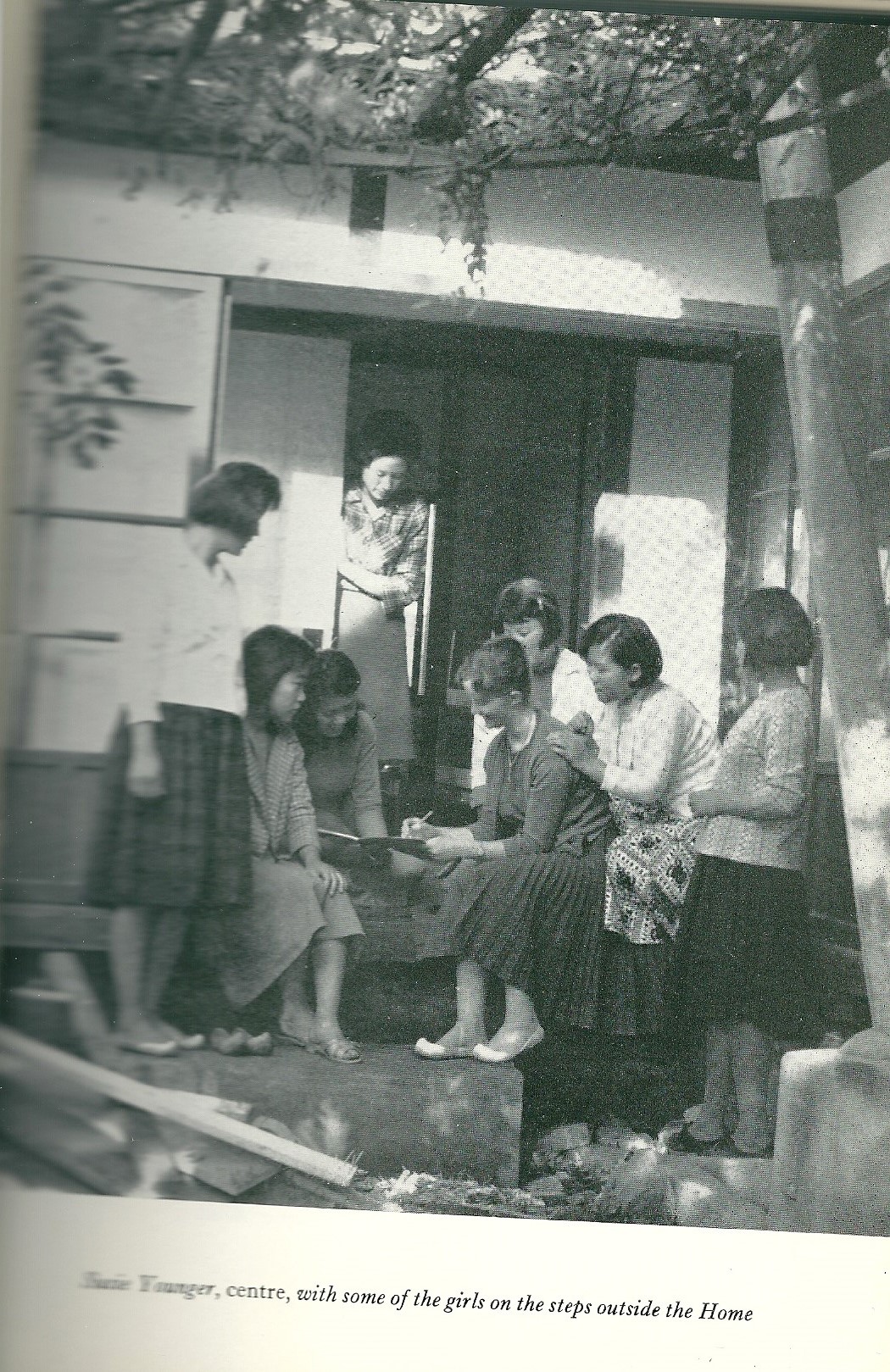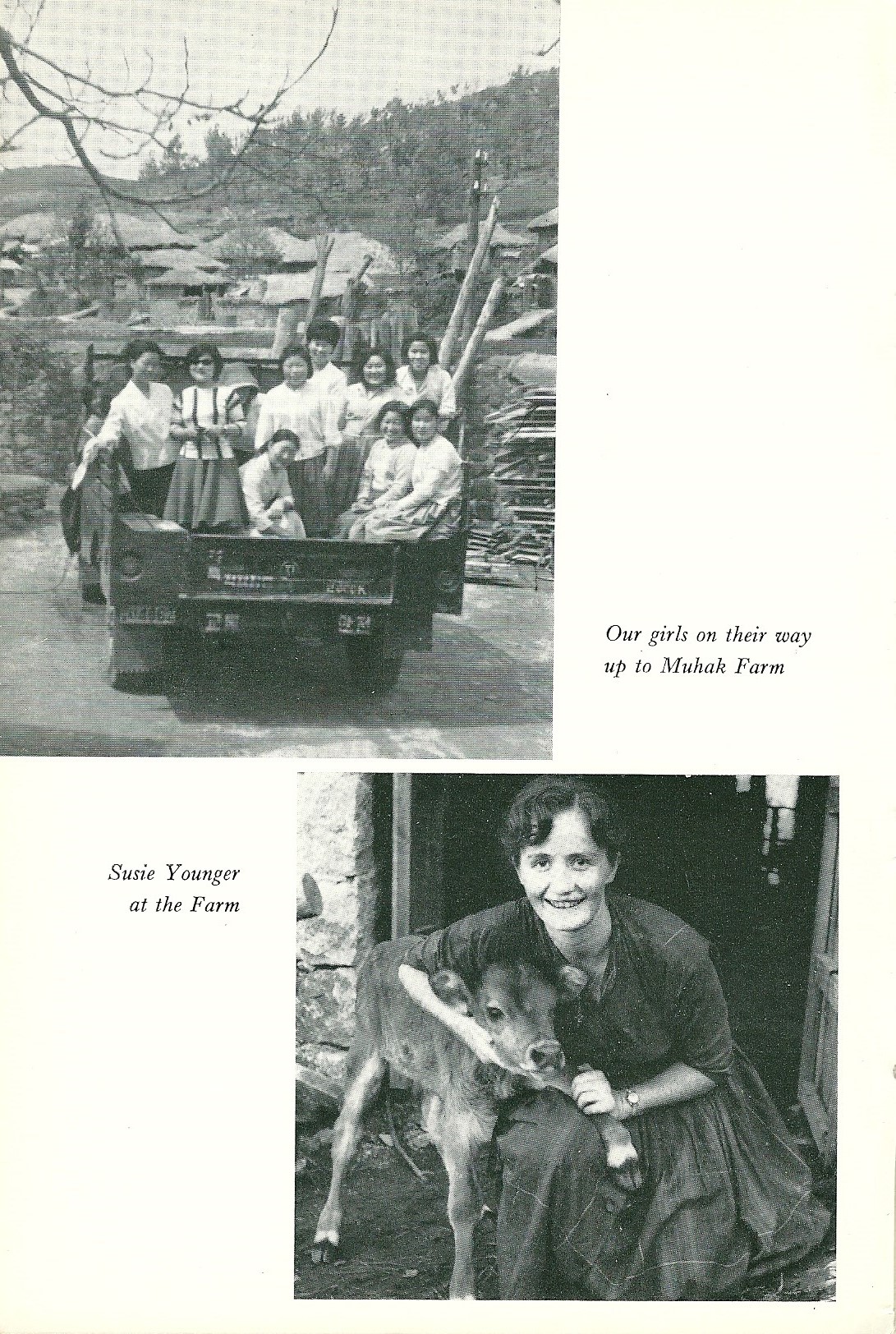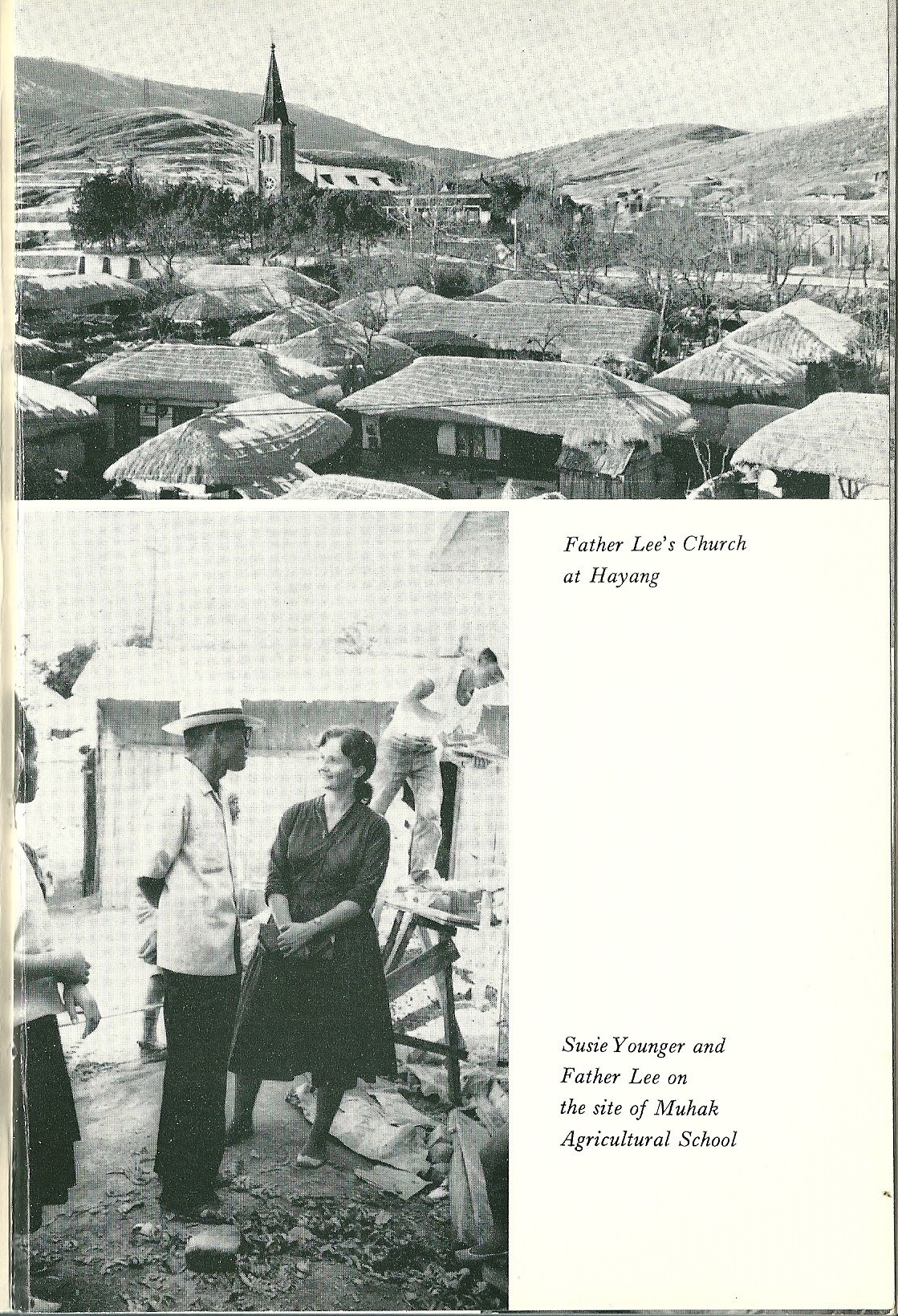June 2015 North Korean Questions raised In Parliament:
Lord Alton of Liverpool Crossbench
To ask Her Majesty’s Government what assessment they have made of whether the Six Party Talks on North Korea will resume, and of the likelihood of progress on the issue of nuclear weapons controls in the light of the five previous United Nations Security Council Resolutions and two Agreed Frameworks.
Hansard source
(Citation: HL Deb, 10 June 2015, cW)
Baroness Anelay of St JohnsBaroness Anelay of St Johns Conservative
The Minister of State for Foreign and Commonwealth Affairs, my right hon. Friend the Member for East Devon (Mr Swire), discussed this with the Assistant Secretary in Washington on 2 June. An immediate resumption of Six Party Talks appears unlikely. While the US remain open to the prospect of resuming dialogue, they have also called for the Democratic People’s Republic of Korea (DPRK) to demonstrate good faith before returning to talks. Thus far, the DPRK has rejected all proposals for talks on these terms.
We remain extremely concerned by the DPRK’s nuclear and ballistic missile programmes and continue to urge the DPRK to: comply with its obligations under relevant UN Security Council Resolutions; refrain from any further provocations; abide by its obligations under the Nuclear Non-Proliferation Treaty; and permit full access by the International Atomic Energy Agency. We urge the rigorous implementation of sanctions by the international community to limit the DPRK’s ability to advance its programmes.
———————————————————————————————————————————-
Lord Alton of Liverpool Crossbench
To ask Her Majesty’s Government, further to the Written Answer by the Minister of State for Immigration, James Brokenshire, on 26 March (HC228701), and in the light of the ongoing practice of the United Kingdom of deporting North Korean asylum seekers to South Korea, what assessment they have made of the statement by the government of South Korea in a letter to the Secretary of State in 2010, cited in the judgment of the Upper Tribunal in GP and others (South Korean Citizenship) North Korean CG [2014] UKUT 391(IAC) that North Korean refugees must “desire to live in the Republic of Korea” before they can be considered South Korean nationals or be offered protection and settlement support.
Hansard source
(Citation: HL Deb, 8 June 2015, cW)
Lord Bates Conservative
The July 2010 letter written by the South Korean Embassy in London to the Home Office was fully considered by the Upper Tribunal in the case of GP and others.
In paragraph 104 of its determination the Upper Tribunal noted firstly that the subsequent United Kingdom-South Korea Readmission Agreement entered into between the two countries on 10 December 2011 provides a mechanism for the issue of travel documents which is not dependent on the genuineness of the individual’s wish to live in South Korea; and secondly, the question of refugee status is an objective test which requires the person to demonstrate that they have cooperated by seeking to establish whether they can avail themselves of protection from another State of which they may be a citizen.
————————————————————————————————————————————-
Baroness Anelay of St Johns, the Foreign and Commonwealth Office, has provided the following answer to parliamentary question (HL126):
Question:
To ask Her Majesty’s Government whether the proposed United Nations field office in South Korea will monitor human rights violations in North Korea; and what is their assessment of the state of progress in establishing that office. (HL126)
Tabled on: 01 June 2015
Answer:
Baroness Anelay of St Johns:
The UN Human Rights Council mandated the UN field office in Seoul to monitor and document the human rights situation in the Democratic People’s Republic of Korea (DPRK) in resolution A/HRC/RES/25/25. This resolution also mandates the field office to enhance the engagement and capacity-building of various stakeholders and to maintain the visibility of the human rights situation in the DPRK. The UK supported this resolution and looks forward to the opening of the field office. The Office of the High Commissioner for Human Rights in Geneva have advised us that the field office should become operational this month.
Date and time of answer: 04 Jun 2015 at 16:53.
——————————————————————————————————————————–
Baroness Anelay of St Johns, the Foreign and Commonwealth Office, has provided the following answer to written parliamentary question (HL127):
Question:
To ask Her Majesty’s Government what assessment they have made of the United Nations World Food Programme’s estimate that $69 million is required to ensure food security in North Korea, in the light of the level of spending by the government of North Korea on defence and luxury facilities; and what discussions they have had with the government of North Korea about their spending priorities and their requests for international aid. (HL127)
Tabled on: 01 June 2015
Answer:
Baroness Anelay of St Johns:
The Foreign and Commonwealth Office has not made an independent assessment on the food security situation within the Democratic People’s Republic of Korea (DPRK). We remain concerned about the DPRK government’s continued prioritization of military spending over spending to feed its people. The UK does not have a bilateral aid programme in the DPRK nor have we held recent discussions with the DPRK government regarding spending priorities or requests for international aid.
Date and time of answer: 04 Jun 2015 at 16:52.
———————————————————————————————————————————–
Baroness Anelay of St Johns, the Foreign and Commonwealth Office, has provided the following answer to written parliamentary question (HL48):
Question:
To ask Her Majesty’s Government what is their assessment of recent reports of the execution of senior officials, and others, in North Korea; when they last raised human rights violations with the North Korean regime; what was discussed and what response was received. (HL48)
Tabled on: 27 May 2015
Answer:
Baroness Anelay of St Johns:
We have seen recent media reporting speculating on the purge and execution of the Defence Minister of the Democratic People’s Republic of Korea (DPRK), General Hyon Yong Chol, together with other officials. There has been no announcement from the DPRK on the fate of General Hyon and, due to the opaque nature of the DPRK system, it is difficult to verify the accuracy of such reports.
We continue to be deeply concerned by the DPRK human rights situation and use our diplomatic relations to press these concerns wherever possible. In January, representatives of EU embassies in Pyongyang, including the UK, met the DPRK Foreign Minister to discuss a range of issues including human rights. In February, Foreign and Commonwealth Office officials met with DPRK Embassy officials and discussed freedom of expression, the March UN Human Rights Council session and EU plans for a resolution on human rights in the DPRK. More recently, at a meeting in March with the DPRK Ambassador to the UK, we underlined the strength of British Government and public interest in this issue. We used these meetings to raise our concerns and to encourage concrete change in the DPRK and positive interaction with the international community. The DPRK expressed disappointment over the UK and EU’s work to raise our concerns in international fora and challenged international assessments of its domestic human rights situation.
Date and time of answer: 04 Jun 2015 at 13:00.
————————————————————————————————————————————-
Links to information on UN Commission of Inquiry into Human Rights Abuses in North Korea….
https://www.davidalton.net/2014/02/21/north-korea-and-the-chilling-findings-of-the-united-nations-commission-of-inquiry-and-details-of-two-forthcoming-meetings-at-westminster-where-you-can-learn-more/
Also see:
https://www.davidalton.net/2014/07/24/british-parliament-debates-the-united-nations-commission-of-inquiry-report-into-crimes-against-humanity-in-north-korea/
Susie Younger’s book “Never Ending Flower” was published in 1967.
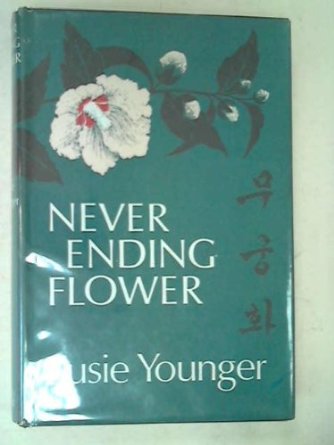
She was a young Scot who read Politics, Philosophy and Economics at the University of Oxford. While she was a student she became a Christian and, in 1960, went to Korea, learnt the language, and decided to work among the poor for the rest of her life. Her book was published in 1967 by Collins and Harvill. It’s an inspiring account – not unlike the stories of Gladys Aylward and Jackie Pullinger, who also found their way to the Orient.
Having arrived in Korea with a young Austrian companion, Maria Heissenberger, they set up a house for young street children, bootblacks whose employers exploited the children and took most of their earnings from them. It was a tiny house and they lived with those they cared for, sleeping on the floors and living of a simple diet of rice, barley and vegetables.
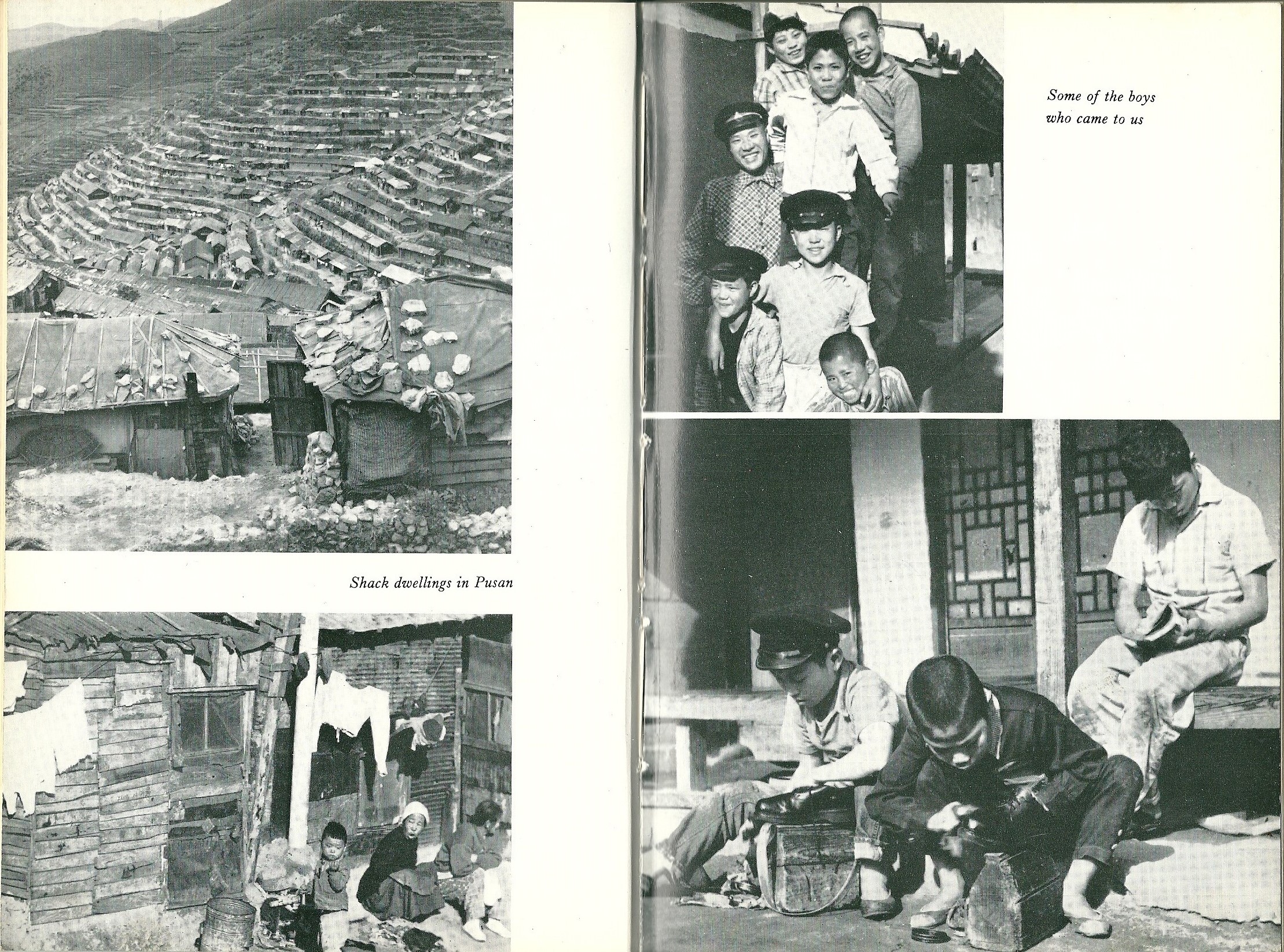
They set up a house for young street children, bootblacks whose employers exploited the children and took most of their earnings from them
The project was an early recipient of help from OXFAM and CAFOD and it led to a second house being created in Taegu where Susie set up a home for country girls. They had come to the city looking for work and some had been ensnared into prostitution. Susie Younger records some profoundly moving stories of girls who rediscover themselves and who find security, love, employment and, often, marriage.
In the later part of the book Susie Younger describes the creation of a 200 acre co-operative farm at Muhak.

Susie Younger describes the creation of a 200 acre co-operative farm at Muhak. It was the brain child of a Korean priest, Fr.Lee
It was the brain child of a Korean priest, Fr.Lee, and part of its purpose was to create produce and resources to support Susie’s work. This was when she also met Fr.Stephen Kim – who would, in due course become the Bishop of Masan and eventually the Cardinal Archbishop of Seoul.

Fr.Stephen Kim – who would become Cardinal Archbishop of Seoul and who would shelter democracy protesters in his Seoul Cathedral
It was he who stood against the military junta and protected the student protestors who had gathered in his Seoul cathedral. It is fascinating to discover him here, in a book written twenty year earlier, giving so much encouragement to a young Scot from Oxford University.
The book takes its title from the national flower of Korea, the Syrian hibiscus – the Biblical Rose of Sharon. Susie Younger says that because it blossoms from spring until late autumn this tenacious plant is known in Korea as “the never ending flower.”
Although, at the height of summer, the sun scorches and destroys its blossoms, the following day it is resplendent with new flowers. In the case of Korea – whether struggling in the 1960s from the after effects of the Korean War and military dictatorship or, in the North, from decades of totalitarianism, or in the aftermath of South Korea’s heart-breaking maritime tragedy – the resilience and the ability, in adversity, to renew and restore damaged beauty seems very apt.
The book concludes with an appendix in which Susie Younger sets out her personal testimony and her hope to stay among the people she felt called to serve for the rest of her life. The book was published in 1967 and it would be intriguing to know how the story continued.

